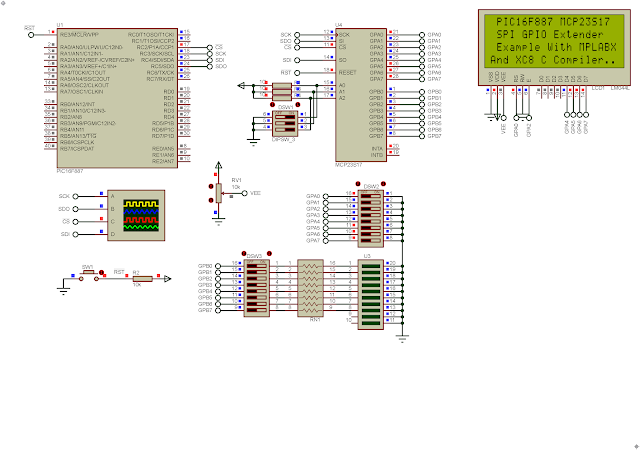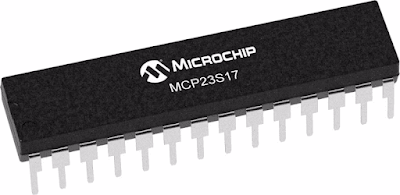In previous post I use the SPI interface of PIC16F887 to communicate with the MCP23S17 to read and write data from its I/O ports. The I/O port of MCP23S17 could be used for many input output purposes, relays driving, input sensor reading, etc.
 |
| Program Simulation in Proteus |
In this example, I use GPIOA of MCP23S17 to control an HD44780 based character LCD module using its 4-bit data transfer mode. The MCP23S17 just need to write the 8-bit command or data to the LCD without concerning about reading the data back.
 |
| MCP23S17 DIP-28 |
The 8-bit LCD data will transfer the LCD controller twice. The higher nibble is sent first and then the lower nibble of the data byte. So the data byte must be latched into the LCD controller twice. Data latching is activated at falling edge of Enable (E) pin of the LCD.
I use the internal RC oscillator of PIC16F887 of 8MHz. The SPI clock frequency is Fosc/4. So the transfer rate is slower compare to direct I/O port driving. However we can use the external 20MHz crystal to get a higher frequency.
I putted the SPI driver in separated files.
- The spi.h header file
- The spi.c source file
I wrote a driver for the MCP23S17 to send and received the data from this chip. It uses the SPI driver above.
- The MCP23S17.h header file
- The mcp23S17.c source file
The MPLABX IDE version is v6.15 and the XC8 C compiler version is v2.36. You can use the latest version of C compiler as you prefer. Click here to download its source file.
No comments:
Post a Comment